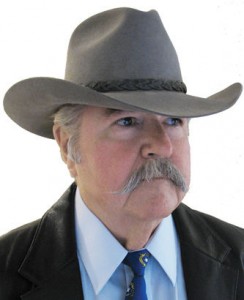 (Thomas Mitchell, 4TH ST8) – Some legislation just shouldn’t be necessary, but common sense is so rare.
(Thomas Mitchell, 4TH ST8) – Some legislation just shouldn’t be necessary, but common sense is so rare.
This past week the Senate Committee on Education forwarded to the full Senate Senate Bill 420, which is being described as the Nevada version of New Voices legislation, which requires schools to draft policies to protect student journalists and student publications from censorship and punishment for publication, according to the Nevada Press Association.
The bill adds this language to the law: “The board of trustees of each school district, the governing body of each charter school and the governing body of each university school for profoundly gifted pupils shall adopt a written policy for pupil publications which: (a) Establishes reasonable provisions governing the time, place and manner for the distribution of pupil publications; and (b) Protects the right of expression described in subsection 1 for pupils working on pupil publications as journalists in their determination of the news, opinions, feature content, advertising content and other content of pupil publications.”
I wrote about a student censorship effort that took place in 2010, when a choir teacher at the Churchill County High School sued a student journalist at the school’s student newspaper for writing an article — that was actually printed in the Lahontan Valley News, the community newspaper — saying parents were upset that the teacher withheld certain students’ audition tapes from a state musical competition. The case was thrown out with the judge citing the state’s anti-SLAPP (Strategic Lawsuit Against Public Participation) statute in effect at the time.
Barry Smith, executive director of the Nevada Press Association, said at the time, “Anti-SLAPP statutes are important to protect free speech, because sometimes people sue just to silence their critics.”
Efforts to repeal the anti-SLAPP law have been unsuccessful so far.
But the law of the land for students is found in Hazelwood School District v. Kuhlmeier, in which the U.S. Supreme Court held in 1988: “A school need not tolerate student speech that is inconsistent with its basic educational mission, even though the government could not censor similar speech outside the school.”
Former Fallon student Lauren Draper, who penned the choir teacher story, testified for SB420.
“Less than six months from graduating Churchill County High School, I found myself terrified,” she told legislators, according to NPA’s account. “After I sought and reported the truth about choir students’ audition tapes being withheld from a statewide competition, I found myself frightened and confused about whether I had made the right decision in writing the article. I followed the code of ethics and made no libelous claims, yet I felt guilty and ashamed of reporting the truth. I was shamed by teachers I had respected and was called a ‘zealous child’ by the co-chair of the Churchill County Educators Association.”
Since Hazelwood schools have too often used censorship to protect administrators from being embarrassed by student journalists rather than protecting the “educational mission.”
Mr. Mitchell publishes the 4TH ST8 Blog.
Column originally published at 4TH ST8.


Facebook
Twitter
Pinterest
RSS